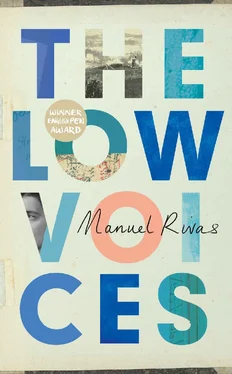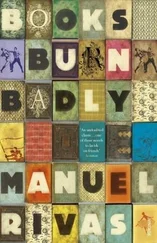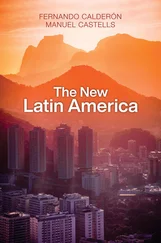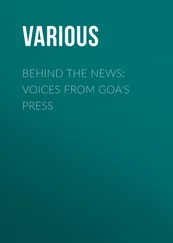Manuel Rivas
The Low Voices
The Low Voices draws on a patchwork of memories from Rivas’s early life under Franco. There’s his beloved elder sister, María; his mother, the verbivore; his father, a construction worker with vertigo; and a supporting cast of local priests, chatty hairdressers, wolf hunters and monstrous carnival effigies.
The book is full of wonderful personal stories, set against a background of the ravages of the Spanish Civil War and its aftermath at home, and the wider world as Coca-Cola sets up a factory nearby and news comes in of men landing on the moon.
A brilliant coming-of-age novel from one of Spain’s greatest storytellers, The Low Voices is a humorous and philosophical take on memory, belonging, and the nature of storytelling itself.
Manuel Rivaswas born in Coruña in 1957, and writes in the Galician language of north-west Spain. He is well known for his journalism, as well as for his prizewinning short stories and novels, which include the internationally acclaimed The Carpenter’s Pencil and Books Burn Badly . His work has been translated into more than twenty languages.
To Xesús González Gómez, author of The Secret Language, who one day, in the Raval in Barcelona, talked to me about the ‘low voices’.
WE WERE ALONE, María and I, hugging in the bathroom. Fugitives from terror, we hid in the dark chamber. On stormy days, you could hear the sea’s roar. Today it was the rusty, asthmatic mutter of the cistern. Finally, we heard her voice. Calling for us. With unease, to begin with. Then with growing anxiety. We had to respond. Show signs of life. But she took the initiative. We heard her panting, hurried footsteps, the eager sniffing of someone picking up a scent. María drew back the bolt. My mother pushed open the door, bringing the light with her, a storm still in her eyes. Her fear was that of someone who comes home and finds no trace of the children she left playing calmly. Our fear was more primitive than that. It was our first fear.
My mother, Carme, worked as a milkmaid. We rented the ground floor of a house on Marola Street, in the district of Monte Alto in A Coruña. My father had recently returned from South America, from La Guaira, where he’d worked in construction, scaling the summits of buildings and climbing the sky on fragile scaffolding. A quick emigration, just enough time to save the money to buy a plot of land. Many years later, in his old age, he confessed a weakness, he who wasn’t in the habit of opening up his secret zone: he suffered from vertigo. All his life, he’d had vertigo. And a large part of that life had been spent on building sites, as a bricklayer’s mate and finally as a master builder. Never, until he retired, did he confide in anyone. About his vertigo. About the fact he felt horror inside when he was down on the ground, looking up, and above all when he was up in the air, looking down. Panic from the very first step. But his foot always went in search of the second step. And the second step always led to the third.

The author and his sister María
‘Why didn’t you say?’
‘What would happen to a workman who went around saying he suffered from vertigo? Who would take him on? Vertigo? The word didn’t even exist!’
He almost died in La Guaira, stuck in a hut on the hillside, between the forest and a few other shacks, but only he knew about this. During his fever, his sole connection with reality was the voice of a parrot that kept intoning a woman’s name: ‘Margarita! Margarita!’ He knew it existed, this bird. Perhaps the woman as well. One day, he thought he heard, ‘Go cry in the valley, old parrot!’ But he never saw them, the bird or the woman. When he got better, one Sunday, on his day off from work, he went looking for the parrot. He wanted to talk to it, to offer it his thanks. It had been his only thread to life. But he never found it. My father didn’t give this story a magical interpretation. In that place, birds, like people, came and went.
Early in the morning, he would drink a black coffee and leave on his Montesa. Our father, who had returned. Before that, he had a Vespa — and then a Lambretta, which formed part of our family’s mythology since it could carry us all without a whimper, with that sense of self-denial displayed by certain domestic appliances. That was his breakfast: black coffee, piping hot. Whenever he had a cold or the flu, he would double the dose of coffee and take an aspirin. He had an almost fanatical faith in acetylsalicylic acid. When his body turned against him and one leg refused to walk, he had to be admitted to hospital. The doctors who operated on his leg found traces of at least two heart attacks. He’d survived these attacks in secret, but silences like that usually write in Braille on a tunnel of the body. Only once, in passing, did he remark that he’d lost the strength in his arms. Whenever he lifted them to operate on a ceiling, they would put up a heavy resistance. He would look at them in surprise, as at two old, unruly companions. Of the memories that used to make him laugh, one was of his youth as a musician in various dance orchestras and of the drummer so taken up with the others’ playing that he missed his cue. The paso doble ground to a halt, suspended somewhere in the night, until the conductor’s apocalyptic command made itself heard: ‘Cymbals, boy! Let the wonders of the world ignite!’ An order issued in this way, like a cosmic outburst, sounded like part of the spectacle, but it still took the boy a little time to re-establish the connection. Wonders. Cymbals. The paso doble. Him. In the end, the drummer got going and made the whole night tremble. So, whenever my father’s arms grew tired on site, whenever he noticed a lack of energy, he didn’t think about a possible heart attack, but about the infallible outburst ‘Cymbals, boy! Let the wonders of the world ignite!’
Just as my father couldn’t possibly suffer from vertigo, so my mother couldn’t possibly fall ill. There were only two moments of real peace. One was on her way to church on a Sunday morning. Not the Mass itself so much as going to Mass. That opiate journey, that translation . The other moment was when she had the opportunity to read. Her turn with the newspaper. Having cooked a meal, cleaned, washed, scrubbed, put everything in order, she had this means of escape. A few minutes of total abstraction. The same with books, any book that happened to be lying about the house. This relationship, this happiness, was admirable. You could shout there was a fire, a flood, anything. Our mother would remain entranced. Trapped. Abducted. She wouldn’t reply. Wouldn’t even look up. Her only reaction was to draw closer to the object of vigil.
There were times when it seemed it would pass, this business of falling ill. ‘I don’t feel so well, I’m going to lie down for a while.’ And the time of healing would last as long as a Mass or a reading. When the disease finally arrived, it wasn’t in the manner of the story she used to tell us. It didn’t come on a visit.
‘Who is it?’ asks the old peasant farmer in bed, surprised by a knock one winter’s night.
‘It’s me!’ says an unmistakable voice. ‘Open up at once!’
This goes on until the old farmer plucks up the courage to say, ‘Off with you! There’s no one at home.’
And Death mutters, ‘It’s just as well I didn’t come, then.’
Читать дальше













